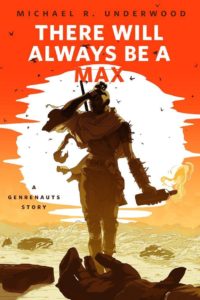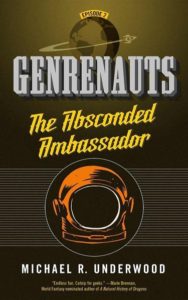(This is part “Three Questions With Xxxx“. If you’re interested in taking part click here and fill out the form.)
I’ve been friends with and a fan of Gus for a long time. He’s multi-talented and insanely creative, so coming up with questions was easy. Let’s get to the interview!
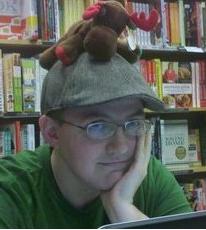 1) You’re what I like to call a triple threat when it comes to creatives; crafter, voice actor/podcaster, and writer. Do you find this spreads your time thin or does it actually make the whole of your creative experience more than the sum of its parts (or both)?
1) You’re what I like to call a triple threat when it comes to creatives; crafter, voice actor/podcaster, and writer. Do you find this spreads your time thin or does it actually make the whole of your creative experience more than the sum of its parts (or both)?
Oh, man. If you happen to have a time machine, that would be great.
In some ways, I do think it spreads my time thin, but then I really think about it, and each of these individual creative endeavors (hereafter referred to as “hobbies”) have their own space in my life. I’m a morning writer, for the most part, which leaves evenings free for other hobbies. My crafting (I make chainmail, for those who don’t know) is what I do when my brain needs to do nothing but I don’t want to sit idle. My hands still need activity, if the family is at home watching TV. We have our few regular shows, and those are golden times for me to make things. Audio work (voice recording, audio editing) is mostly a night kind of thing, really, when the family’s wound down and we just kind of want to do our own thing. Sure, my cohosts and I record together, but editing is solitary, so that’s automatic alone time right there.
Having all my time spread out like that stirs my creative juices. It’s easy to get bored with a hobby and then just… be bored. But I can always switch to something else rather than languishing in ennui. In particular, my podcast and my writing feed into eac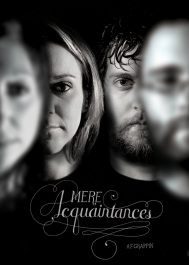 h other. I’ve had a few of my own pieces featured on the podcast, but it’s also a great way for me to explore short works by different authors. There’s nothing quite like reading something aloud and making it into a whole, cohesive audio work to help learn more about the writing craft. And it’s always refreshing to have a new story to do every month.
h other. I’ve had a few of my own pieces featured on the podcast, but it’s also a great way for me to explore short works by different authors. There’s nothing quite like reading something aloud and making it into a whole, cohesive audio work to help learn more about the writing craft. And it’s always refreshing to have a new story to do every month.
My chainmail though… that’s my immediate gratification hobby. Writing takes time. Publishing takes time. Recording and producing audio takes time. It all takes a lot of it. But I can make a bracelet in an hour or two. I can make big wall hangings and little keychains, and working with the hands, on something I can actually touch… it’s cathartic in a whole different way than the words are.
So I guess I would say my inability to stop creating is both the whole AND the sum of its parts. If that makes sense. If it does, explain it to me, because I don’t know if I get it. I just know that if I had to give one of them up, it would be difficult to pick which one.
2) When you get a new idea – whether it’s a chainmail piece, a story, or one for your show – do you jump on it right away, or do you let it sit for a while?
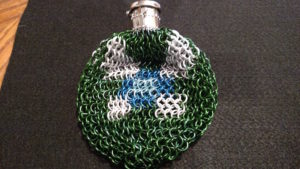 With my podcast, I want to do new things immediately. The Melting Potcast is a variety show, so coming up with a new kind of segment is something it’s easy to follow up on. In that kind of situation, I tend to jump on it right away. Like when I came up with our madlib segment. I started pretty much the day I conceived of it. Getting new submissions… not so much. I get more concerned about producing the next episode than starting work on a brand new story. Plus, we’re at about a 4-6 month or so turnaround time from when a story is accepted to when it’s released in an episode, so that’s all an exercise in patience.
With my podcast, I want to do new things immediately. The Melting Potcast is a variety show, so coming up with a new kind of segment is something it’s easy to follow up on. In that kind of situation, I tend to jump on it right away. Like when I came up with our madlib segment. I started pretty much the day I conceived of it. Getting new submissions… not so much. I get more concerned about producing the next episode than starting work on a brand new story. Plus, we’re at about a 4-6 month or so turnaround time from when a story is accepted to when it’s released in an episode, so that’s all an exercise in patience.
My own writing… if the idea is for something short, like a flash fiction story or even a short story, I may go ahead and do it, or at least get started, just to get the ideas down while it’s still fresh. Novels… I’m at the point right now where if I started every little novel idea I got, I’d never finish anything. It took me quite some time to learn to put new novel ideas aside, and I got a little notebook to write down the basic ideas in. Just for the future, if I ever needed them again. It’s easier to let go of new time stealers that way.

Again, the chainmail is the different story. If I see something new I want to make, or get an idea, I want to make it NOW! I want to go through the process of making it so I can hold it when it’s finished. Luckily, I usually only have one project going at a time, so it’s easy to just finish whatever thing I’m making and then pick up on the new idea. The only real holdback I get is if I don’t have the right size rings or whatever I need to make the thing in question. It takes about a week or so for me to get in new supplies when I order them, so sometimes that wait is agony. What’s worse is when I’m halfway through making something and I run out of the rings I need… and then my supplier is out of stock. But I always have something else I can make.
3) As someone who publishes works by others, what’s your favorite and least favorite part of the process?
I’d say my favorite part of the process is finally being finished! While I love casting and recording the stories and characters, and putting it all together can be a great creative blast, the best part is finally having the whole picture completed and being able to listen to it.
That and maybe adding sound effects when they’re warranted.
My least favorite part is definitely reading through submissions. I tend to fall behind on that. And it’s not that I don’t want to do it or that I’m afraid everything we get is crap. It’s not. I love to read. But there’s that lingering fear that I’m going to have to reject something because it doesn’t fit with us. I would rather be producing episodes than going through the logistics of picking what stories we do. I’ve actually been really lucky so far. What we’ve had submitted to us is great. Also… I’m not a huge fan of the grunt work of initial audio editing, weeding out the bad takes of readings so 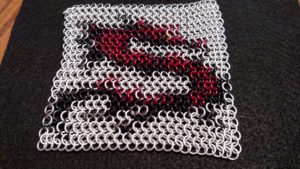 I’ve got usable audio. That’s tedious. But then I get to sift for bloopers, so there is an upside.
I’ve got usable audio. That’s tedious. But then I get to sift for bloopers, so there is an upside.
So if you submit to us and don’t hear anything for a while, it’s nothing against you. I just get lazy, let them build up, and then binge read submissions.
Twitter
Amazon Page
The Chain Nerd Chainmail
The Meltingpotcast



